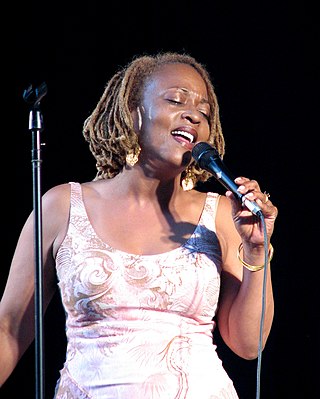
Cassandra Wilson is an American jazz singer, songwriter, and producer from Jackson, Mississippi. She is one of the most successful female jazz singers and has been described by critic Gary Giddins as "a singer blessed with an unmistakable timbre and attack [who has] expanded the playing field" by incorporating blues, country, and folk music into her work. She has won numerous awards, including two Grammys, and was named "America's Best Singer" by Time magazine in 2001.
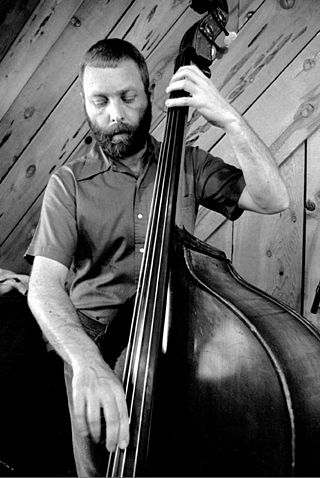
David Holland is an English double bassist, bass guitarist, cellist, composer and bandleader who has been performing and recording for five decades. He has lived in the United States since the early 1970s.

Ravi Coltrane is an American jazz saxophonist. Co-owner of the record label RKM Music, he has produced pianist Luis Perdomo, guitarist David Gilmore, and trumpeter Ralph Alessi.

Betty Carter was an American jazz singer known for her improvisational technique, scatting and other complex musical abilities that demonstrated her vocal talent and imaginative interpretation of lyrics and melodies. Vocalist Carmen McRae once remarked: "There's really only one jazz singer—only one: Betty Carter."

I'm Yours, You're Mine is a 1997 studio album by the American jazz singer Betty Carter. Recorded in January 1996, this was the last album that Carter recorded before her death in September 1998.
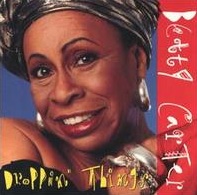
Droppin' Things is a 1990 live album by the American jazz singer Betty Carter.

Charnett Moffett was an American jazz bassist and composer. He was an apparent child prodigy. Moffett began playing bass in the family band, touring the Far East in 1975 at the age of eight. In the mid-1980s, he played with Wynton Marsalis and Branford Marsalis.

Cyrus Chestnut is an American jazz pianist, composer and producer. In 2006, Josh Tyrangiel, music critic for Time, wrote: "What makes Chestnut the best jazz pianist of his generation is a willingness to abandon notes and play space."

David Gilmore is an American jazz guitarist.
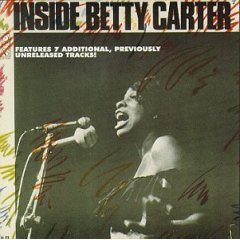
Inside Betty Carter is a 1964 Betty Carter album. It contains the first recording of Carter's signature song, "Open the Door". Originally released on the United Artists label with eight tracks, it was reissued by Capitol Records in 1993 with seven previously unreleased tracks from a 1965 recording session that included Kenny Burrell on guitar.
Bet-Car Records was a record label founded by jazz singer Betty Carter in 1970 to release her own recordings after her negative experiences with other record companies. In 1983 Bet-Car also began to serve as her production and management company under the name Bet-Car Productions. Bet-Car maintained offices in houses that Carter and her family owned in Detroit and later in San Francisco.

The Betty Carter Album is a 1976 album by Betty Carter. It is unique among her albums in its use of overdubbing on some tracks to allow her to record multiple vocal lines. It was also her first album for which she wrote the majority of the songs herself.

Betty Carter at the Village Vanguard is a 1970 live album by Betty Carter featuring her performing with her trio at the Village Vanguard. It was Carter's first live album to be released, and the first album issued on her own label, Bet-Car Records. Originally eponymously titled, it was given its present title for its 1993 release on CD by Verve Records.

Matthew Justin Garrison is an American jazz bassist.

Motéma Music is a jazz and world music record label in the United States. It was founded in 2003 in San Francisco Bay Area by label president and recording artist Jana Herzen. The label has received Grammy recognition more than 25 times for albums in jazz, Latin jazz, reggae, and R&B. Motema's roster includes Gregory Porter, Joey Alexander, Deva Mahal, Pedrito Martinez, Randy Weston, Geri Allen, David Murray, Monty Alexander, and Charnett Moffett, Donny McCaslin, Mark Guiliana, and Terri Lyne Carrington and many other respected artists in jazz, world and soul music.

The Life of a Song is an album by pianist Geri Allen, recorded in 2004 and released on the Telarc label.
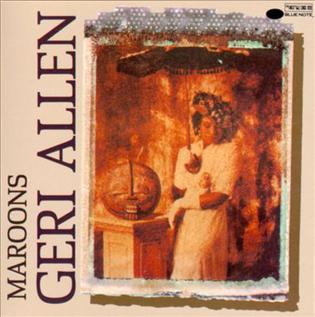
Maroons is an album by pianist Geri Allen recorded in 1992 and released on the Blue Note label.

Twenty One is an album by pianist Geri Allen with bassist Ron Carter and drummer Tony Williams recorded in 1994 and released on the Blue Note label. The title of the album refers to the commitment Allen made at age 21 to continue and extend the tradition of the jazz masters.
This is a timeline documenting events of jazz in the year 2022.

The Music Never Stops is a live album by the American jazz singer Betty Carter. Featuring a blend of original material and standards, it was recorded on March 29, 1992, at Aaron Davis Hall in New York City, as part of one of Jazz at Lincoln Center's earliest seasons. On the album, which was issued by Blue Engine Records in 2019, Carter is accompanied by a variety of ensembles, ranging from small groups to a big band and a string section. The recording marked the first posthumous release of previously unheard music by Carter, and arrived 22 years after her previous release.


















